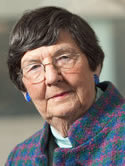The role of posttraumatic growth and timing of quitting smoking as moderators of the relationship between stigma and psychological distress among lung cancer survivors who are former smokers Journal Article
| Authors: | Shen, M. J.; Coups, E. J.; Li, Y.; Holland, J. C.; Hamann, H. A.; Ostroff, J. S. |
| Article Title: | The role of posttraumatic growth and timing of quitting smoking as moderators of the relationship between stigma and psychological distress among lung cancer survivors who are former smokers |
| Abstract: | Objective Patients diagnosed with lung cancer report high levels of stigma and psychological distress. This study examined posttraumatic growth among lung cancer survivors as a potential buffer against this relationship between stigma and psychological distress and examined how these relationships differed by the timing of quitting smoking (pre versus post-diagnosis). Methods Stages IA and IB non-small-cell lung cancer survivors (N = 141) who were former smokers, 1-6 years post-treatment, and had no evidence of disease completed standardized questionnaires assessing stigma, posttraumatic growth, timing of quitting smoking history, and psychological distress. Results Hierarchical linear regression and simple slope analyses indicated that among those who quit smoking prior to diagnosis (pre-diagnosis quitters), stigma had a positive association with psychological distress at high levels of posttraumatic growth (p = 0.003) and had a positive (but non-significant) association with psychological distress among those with low levels of posttraumatic growth (p = 0.167). Among those who quit smoking after diagnosis (post-diagnosis quitters), stigma had a positive association with psychological distress among those with low levels of posttraumatic growth (p = 0.004) but had no relationship among those with high levels of posttraumatic growth (p = 0.880). Conclusions Findings indicate that posttraumatic growth buffers against the negative effects of stigma on psychological distress but only among post-diagnosis quitters. Future interventions could focus on fostering posttraumatic growth as a way to decrease the negative effects of stigma. Copyright © 2014 John Wiley & Sons, Ltd. Copyright © 2014 John Wiley & Sons, Ltd. |
| Keywords: | controlled study; aged; major clinical study; cancer staging; smoking cessation; cancer survivor; questionnaire; distress syndrome; posttraumatic stress disorder; smoking habit; stigma; psychological distress; hospital anxiety and depression scale; linear regression analysis; non small cell lung cancer; lung cancer survivor; posttraumatic growth; human; male; female; article |
| Journal Title: | Psycho-Oncology |
| Volume: | 24 |
| Issue: | 6 |
| ISSN: | 1057-9249 |
| Publisher: | John Wiley & Sons |
| Date Published: | 2015-06-01 |
| Start Page: | 683 |
| End Page: | 690 |
| Language: | English |
| DOI: | 10.1002/pon.3711 |
| PROVIDER: | scopus |
| PUBMED: | 25345591 |
| PMCID: | PMC4515573 |
| DOI/URL: | |
| Notes: | Export Date: 2 July 2015 -- Source: Scopus |
Altmetric
Citation Impact
BMJ Impact Analytics
Related MSK Work







